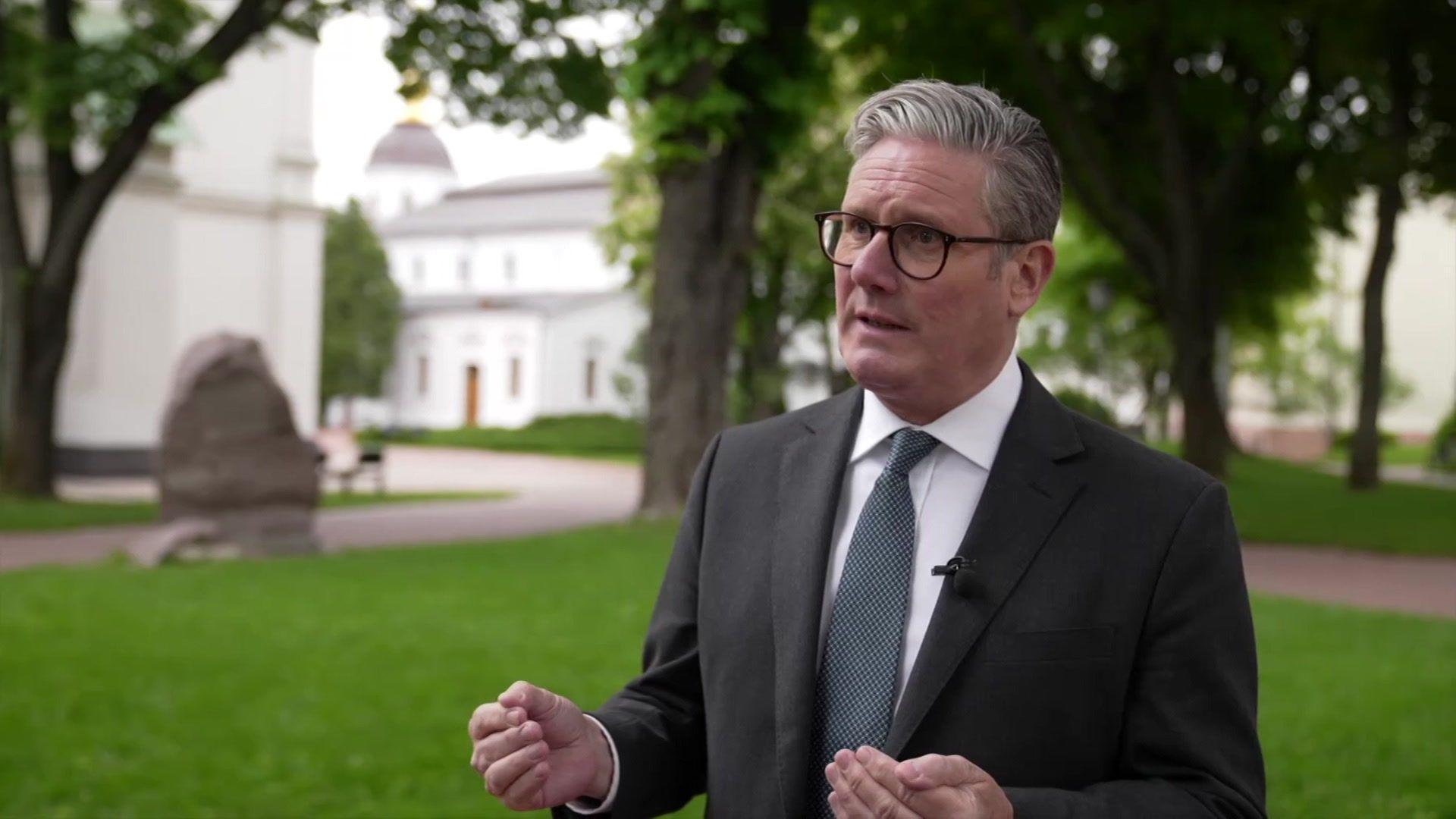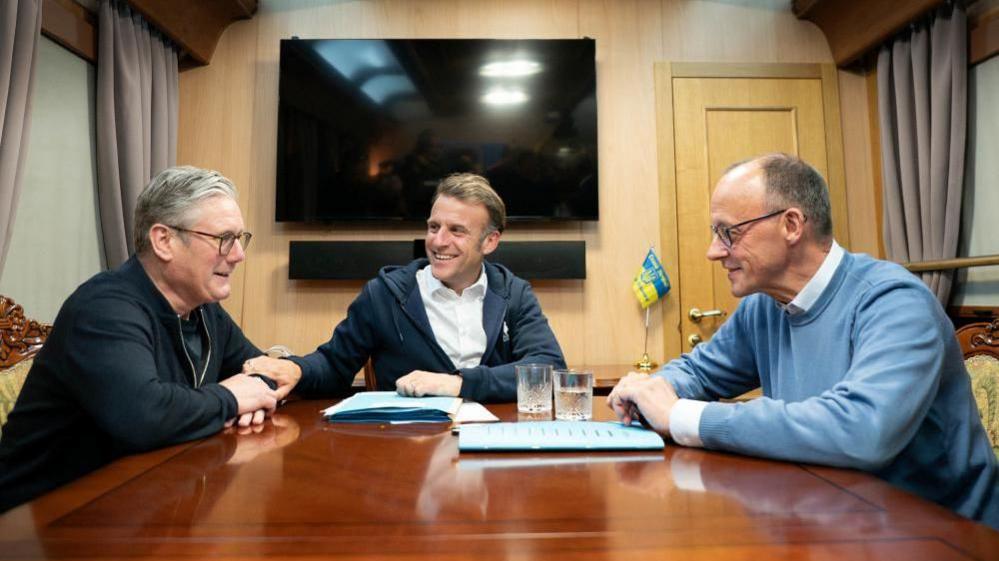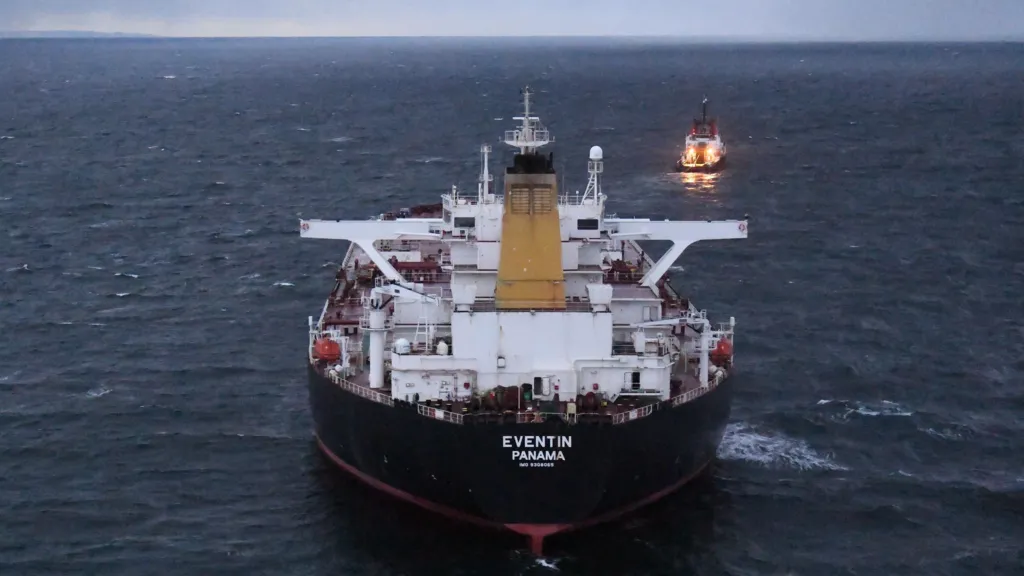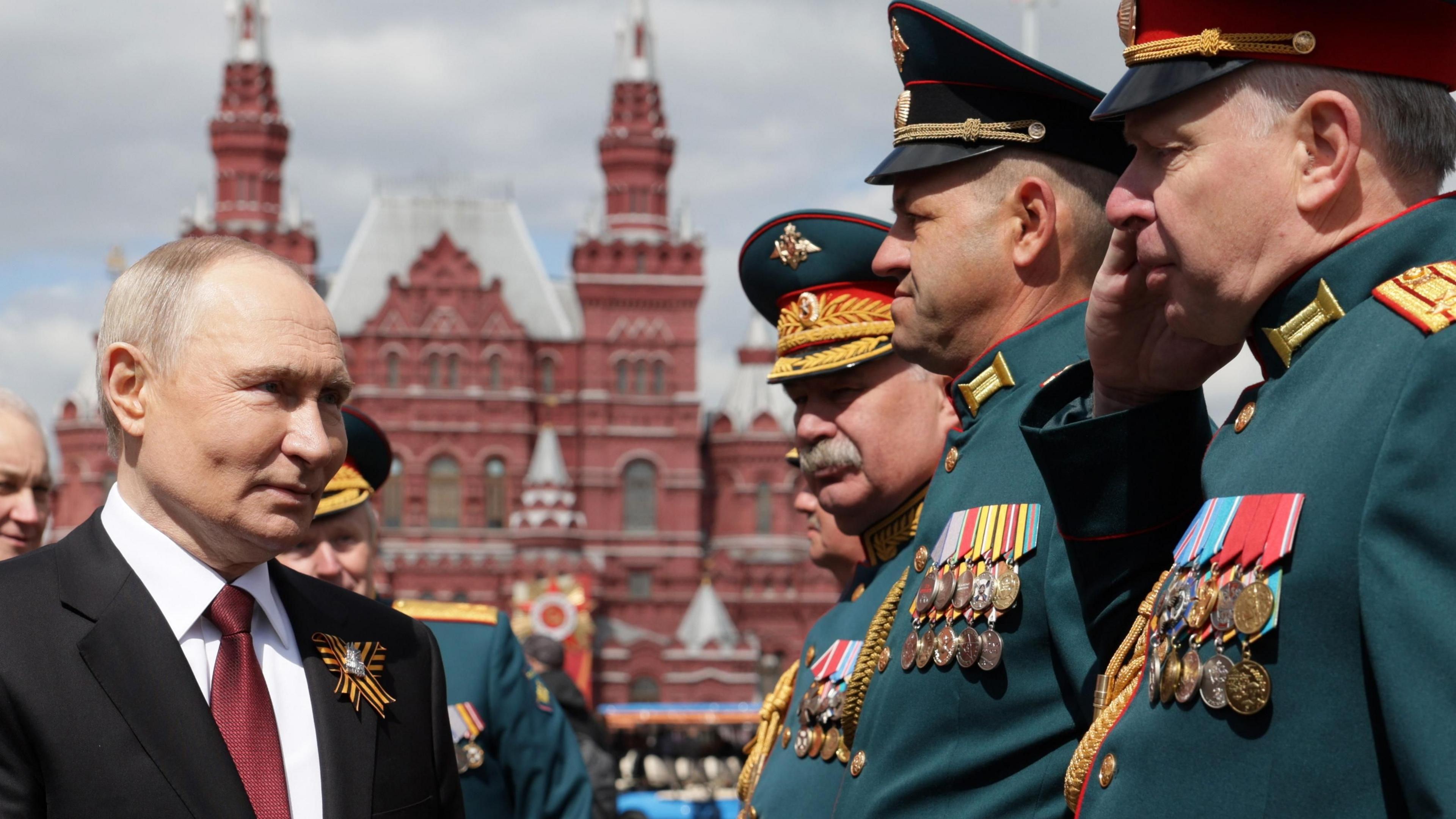Kyiv ceasefire talks a 'significant moment', says Starmer

- Published
Sir Keir Starmer has said that the outcome of talks between Ukraine's allies in Kyiv marks a "significant moment" in the push to secure a ceasefire in its conflict with Russia - but admitted it was not "the end of the process".
Speaking to the BBC in Kyiv following a virtual meeting of the "coalition of the willing", the UK prime minister said "we haven't seen unity like this pretty well throughout the conflict".
Around 30 global leaders reasserted their call for Russia to agree to a 30-day unconditional ceasefire from Monday, threatening "massive" sanctions if it does not comply.
Noting other conflicts including India-Pakistan hostilities, Sir Keir said "we are living in a more uncertain world" that "requires leadership stepping up".
Watch: Starmer asked by BBC if Ukraine ceasefire talks are just an act of symbolism
The UK prime minister joined French President Emmanuel Macron, German Chancellor Friedrich Merz and Polish Prime Minister Donald Tusk for the meeting, which was hosted by Ukrainian Prime Minister Volodymyr Zelensky.
Other members of the "coalition of the willing" participated remotely, including Italy's Prime Minister Giorgia Meloni, Canadian PM Mark Carney, President of the European Commission Ursula von der Leyen, and Mark Rutte, the secretary-general of Nato.
In a phone call with Donald Trump following the meeting, the US president reportedly reaffirmed his support for the ceasefire, after Vladimir Putin rejected his initial proposal in March.
Sir Keir said Trump was "absolutely clear that this is a demand that must be met".
The leaders assembled in Kyiv warned that "new and massive" sanctions will be imposed on Russia's energy and banking sectors if Putin does not agree to the unconditional 30-day ceasefire "in the air, at sea and on land".
Sir Keir told the BBC that "material progress" had been made during the meeting.
"We've been able to collectively get to a much better position and a more unified position today that holds out a better prospect of a ceasefire," he said.
"You've got unity in the demand, but also unity in what the response will be if the demand is not met. We haven't seen that sort of unity during this conflict."
"I'm not going to pretend this is the end of the process but this is a significant moment we now need to push on and make sure this happens," he added.
Further coordinating sanctions on Russian oil, fossil fuels and other assets would make a "material difference", the prime minister said.
The Kremlin reacted to the proposal by accusing European leaders of making "contradictory" and "generally confrontational" remarks about Russia.
Press secretary Dmitry Peskov said that Ukraine's allies must stop sending weapons to Ukraine before any ceasefire can happen - something European leaders have rejected - before later saying Russia would consider the proposal.
"We have to think about this. This is a new development," state-run Russian news agency Tass reported Peskov as saying.
The Kyiv meeting was a symbolic show of support for Ukraine a day after more than 20 world leaders joined Putin in Moscow for Russia's World War Two Victory Day parade.
The massive military parade was held in Moscow's Red Square to commemorate the defeat of Nazi Germany in 1945 with leaders including China's Xi Jinping, Brazil's President Luiz Inacio Lula da Silva, and Prime Minister Robert Fico of Slovakia, an EU member, in attendance.
"It was a hugely important, symbolic day here in Kyiv because there was a propaganda exercise in Moscow yesterday," Sir Keir told the BBC.
"80 years on from VE Day it was really important that we were here today... to demonstrate that the values that underpinned what was being fought for 80 years ago are the same values now".
Asked whether he feels "scared about the state of the world" as others in Britain do - given conflicts in the Middle East and India-Pakistan tensions - Sir Keir said "we are living in a more uncertain world and we're in a different era of defence and security".
But he said it did not keep him up at night "because it's really important that I focus on what I can do - bringing people together, making significant steps today, making sure we're preparing with Ukraine for what might happen next".
The so-called "coalition of the willing" was established by the UK and France to reinforce any eventual peace deal with security guarantees, including the presence of peacekeeping troops in Ukraine.
Related topics
- Published10 May

- Published9 May

